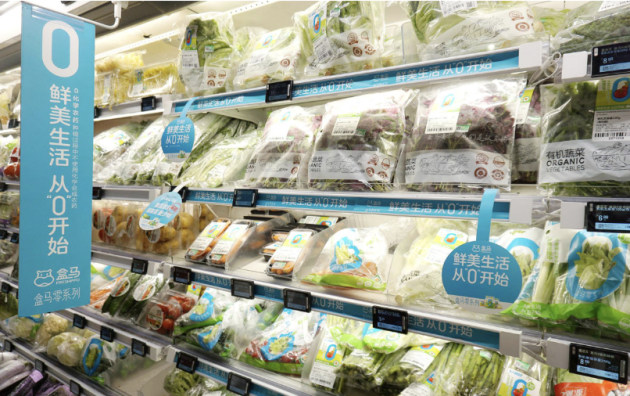More than 40 brands, including major retailers, met with Alibaba Group’s proprietary retail chain for groceries and fresh goods, Freshippo, during its recent networking and sourcing trip to Australia.
During the one-week trip, Freshippo targeted Victoria and New South Wales with the goal of forging new partnerships and exploring collaboration opportunities.
The Freshippo team was led by CEO and co-founder Hou Yi, co-founder Joy Zhao, and head of global sourcing April Huang.
Yi said, “This has been a fruitful trip for Freshippo. We had the opportunity not only to connect with existing clients but also to expand our network and explore potential collaborations with outstanding Australian brands.”
The company has expanded this year, announcing its global supply chain in May and partnerships with 13 retailers, brands, associations, and consulting firms.
It now has 33 retailer partnerships including Coles and NHFoods from Australia and Zespri from New Zealand. Coles’ ice cream debuted on the site in April.

enables 30-minute delivery to customers
living within a three-kilometre radius
of a Freshippo store.
Not divulging which brands made up the 40, Freshippo did say Woolworths and other prominent retail outlets were on the list.
The company said the visit “provided valuable insights into the local retail landscape and allowed Freshippo to connect with important industry players”.
Freshippo’s proprietary fulfillment system enables 30-minute delivery to customers living within a three-kilometre radius of a Freshippo store.
It used the time to also connect with politicians and those in the trade sector, including Victorian trade and investment minister Tim Pallas. Global Victoria, the state’s trade facilitation agency, also hosted an event for the visiting group with 24 companies attending.
In Sydney, Freshippo hosted a roundtable lunch, at which Yi shared his views on the latest retail trends in China and cross-border trading, among other topics.
Huang presented at the recent Global Food Forum, as did Alibaba Group GM Australia and New Zealand, Pier Smulders.
Freshippo operates more than 300 stores across 27 cities in mainland China.
Alibaba Group GM ANZ Pier Smulders: adaptability and agility are key
Smulders said despite restrictions put on various Australian commodities, food, and beverage sectors, the platform hasn’t seen a lack of demand or interest in Australian brands, and products had continued to see growth.
“We can’t control what governments do, whether it’s a local council, whether it’s a state government or a national government. We have to be adaptable, adept and able to move quickly.
The Alibaba ecosystem is worth around US$1.3 trillion and services 1.3 billion consumers globally.
“The demand in China for Australian products is very, very strong and continues to be so. It’s of course very encouraging to see the relationship improve and the dialogue that is happening now.
“There will be opportunities that come out of that reopening. That may mean that companies that weren’t in certain markets before may be able to get some market share that wasn't there before. And there are new ways to reach customers through digital needs. Adversity, as we know in business, almost always leads to opportunity,” Smulders said.
One of the changes Smulder mentioned was Australian brands being more actively engaged in talking to Chinese consumers, rather than products being bought through distributors. He saw potential for high-end Chinese consumers in food tourism, such as a helicopter tours of a large farm to learn how Australian beef is produced.
“It’s not at scale, but those visitors then act as influencers for those products, share the experience on social media and reach a lot of people. There are lots of ways companies can think about engaging with the Chinese community here, and visiting,” Smulder said.
“China is incredibly dynamic and competitive. When I joined the company in 2016, one of its business units, Tmall Global – a cross-border marketplace for foreign brands to sell directly to Chinese consumers – had 3000 flagship stores. Now it has 40,000. And that trend will continue.”







